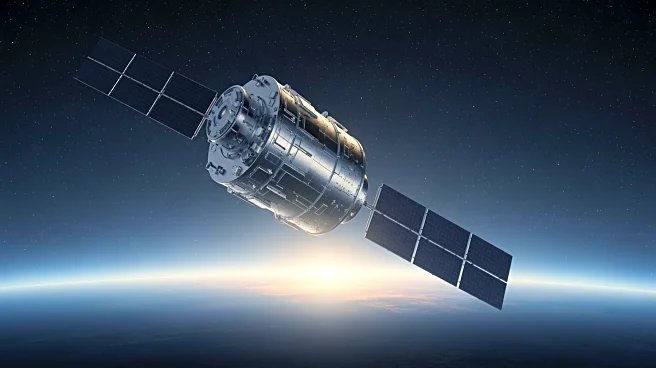What's Happening?
A Russian satellite, known as Luch-Olymp, which had previously raised concerns among NATO members, is reportedly moving to an end-of-life orbit. Kayhan Space, a Colorado-based firm specializing in spaceflight
and satellite analysis, has observed the satellite's maneuvers indicating its mission is nearing completion. German Defense Minister Boris Pistorius had earlier expressed concerns about the satellite's ability to track Intelsat satellites used by the German military. The satellite's repositioning suggests a reduction in Russia's space-based intelligence capabilities, at least temporarily, according to Kayhan Space CEO Siamak Hesar.
Why It's Important?
The development is significant as it highlights the ongoing strategic competition in space, particularly between Russia and NATO countries. The Luch-Olymp satellite has been a focal point of concern due to its potential to conduct intelligence operations by shadowing commercial and military satellites. This maneuvering to an end-of-life orbit may temporarily reduce Russia's ability to gather intelligence from space, impacting its strategic capabilities. The situation underscores the importance of space as a domain for military operations and intelligence gathering, prompting NATO countries to invest in countermeasures and space defense systems.
What's Next?
Russia's future actions in space remain uncertain, but it is likely that Moscow will continue to develop and deploy reconnaissance satellites. The Luch-Olymp 2, a successor to the original satellite, is expected to maintain existing capabilities rather than expand them. Observers will be watching for any new satellite launches or technological advancements that could enhance Russia's space-based intelligence operations. NATO countries may respond by increasing investments in space defense and surveillance technologies to counter potential threats.
Beyond the Headlines
The maneuvering of the Luch-Olymp satellite to an end-of-life orbit raises broader questions about the ethics and legality of space-based intelligence operations. As nations increasingly rely on satellites for military and civilian purposes, the need for international regulations and agreements to govern space activities becomes more pressing. The situation also highlights the potential for space to become a contested domain, with implications for global security and diplomatic relations.











